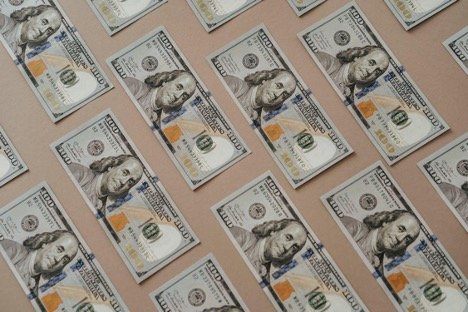Consumer inflation may have reached its peak, but experts predict it will take some time before it cools off.
According to the latest Consumer Price Index numbers, inflation reached a record high when it rose to 5.4 percent in July. With prices expected to remain elevated until 2022, you could be paying top dollar for the essentials.
Inflation ebbs and flows throughout the years, but this sustained hike can pose a problem if you don’t have a cash cushion. That’s because the usual financial tools you might use in an emergency don’t suit this particular problem.
Ordinarily, when you face a single unexpected expense without savings, a cash advance could act as a safety net.
Let’s say you have to pay an unexpectedly high cell phone bill because you were unknowingly roaming for the whole month. If you provider won’t budge on the price, you might apply for an online loan to borrow cash when you need it and use these funds to cover your unexpected roaming charges.
But any legitimate financial institution won’t recommend using cash advances to cover every bill from here on in to help offset sustained inflation. For that, you’ll have to budget extra carefully so that you can handle these expenses until the inflation bubble deflates.
Here are three kinds of bills you can expect to cost more for the next while, with tips on how to control this spending.
1. Groceries
Filling your fridge with fresh, nutritious food will cost more this year than it has in the past, especially if you favor meats and dairy products. On the whole, grocery prices rose by 2.6 percent.
Luckily, you don’t have to adopt a diet to keep your costs low. You can reduce what you spend at the till by shopping in bulk.
Superstores tend to have lower prices, so you can stock up on produce, groceries, and household items. To make sure you use them up before they go bad, cook in large batches and freeze the extras for another meal.
Another money-saving tip is to use coupon and rebate apps in store. Coupons can cut the price of individual items in half, especially if you stack them, and rebates return some of your money after you make a purchase.
2. Cell Phone Bills
Cell phone plans weren’t immune to inflation this year either, but you’re more likely to see a spike in your plan due to taxes. According to the Tax Foundation, cell phone plans rose by 50 percent, with taxes and surcharges taking up 24 percent of the average bill.
Cutting ties with the bigger telecommunication providers will help you save more on this monthly bill. Most smaller providers offer bigger discounts, and you can maximize these savings by limiting your data — people who put a cap on their data limits save $269 on their bills.
3. Utilities
You’re likely spending more to power your home than ever before, as the cost of energy services rose by a whopping 7.2 percent.
To help you keep the lights on without spending a fortune, you can follow these energy-saving tricks to reduce your energy consumption:
- Seal drafts that let air-conditioned or heated air escape
- Lower your water heater from 140°F to 120°F
- Exorcise phantom power by unplugging appliances
- Use your oven, dishwasher, and laundry machines at off-peak hours
Bottom Line
With inflation here to stay, you might not be able to borrow a cash advance to bail you out of higher bills. But you can follow these tips to help you save on these common expenses until inflation cools down.




